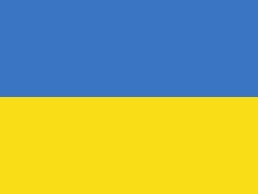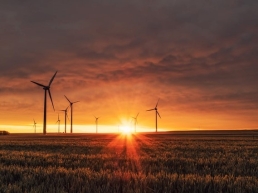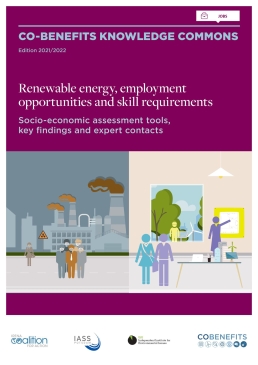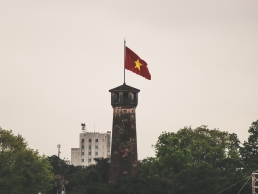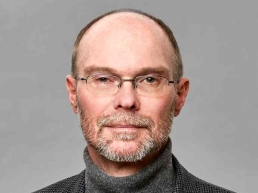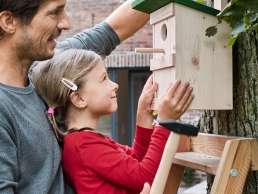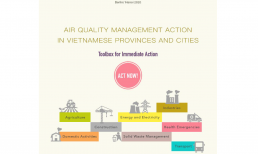Solidarity with Ukraine!
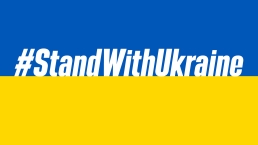
24. Februar 2021
UfU_Stellungnahme_Ukraine (PDF)
__
Solidarity with Ukraine!
The Independent Institute for Environmental Issues – UfU e.V. stands in solidarity behind Ukraine and our project partners there. We strongly condemn the Russian war of aggression against Ukraine!
As a peaceful environmental organisation, it has always been clear to us that differences can only be resolved through dialogue. However great the differences may be, those who act in the spirit of peace, justice and a good future fundamentally reject any form of violence.
We strongly condemn the war of aggression waged by Vladimir Putin against Ukraine and stand in solidarity with our partners in Ukraine. Together with great civil society organisations and the people working and living there, we have achieved a lot in recent years. Together we have worked to improve water management in the Ternopil and Odessa regions and worked with our partners to improve civil society participation in environmental and climate policy issues. The intercultural exchange and the common will to work for a good and sustainable future has enriched us greatly. We are deeply shocked to learn that these people, with whom we have much in common, are now in danger.
We call on Wladimir Putin to end his war against Ukraine immediately and to take the path of peaceful communication. As an institute with its roots in the former GDR, many of our members and founders know the long-term consequences of war and destruction on civil society and the environment. There must be no new war in Europe!
__
__
Solidarität mit der Ukraine!
Das Unabhängigen Institut für Umweltfragen – UfU e.V. steht solidarisch hinter der Ukraine und unseren dortigen Projektpartner*innen. Wir verurteilen den Angriffskrieg von Russland gegen die Ukraine aufs Schärfste!
Als friedliche Umweltorganisation steht für uns schon immer fest: Differenzen lassen sich nur mit Dialogen lösen. So groß die Gräben auch sein mögen, wer im Sinne von Frieden, Gerechtigkeit und einer guten Zukunft handelt, lehnt jede Form von Gewalt grundsätzlich ab.
Wir verurteilen den Angriffskrieg, den Wladimir Putin gegen die Ukraine führt aufs Schärfste und stehen solidarisch hinter unseren Partner*innen in der Ukraine. Gemeinsam mit großartigen zivilgesellschaftlichen Organisationen und den dort arbeitenden und lebenden Menschen haben wir in den letzten Jahren viel bewegt. Gemeinsam haben wir zur Verbesserung des Wassermanagements in den Regionen Ternopil und Odessa zusammengearbeitet und uns mit unseren Partner*innen dafür eingesetzt, dass die Beteiligung der Zivilgesellschaft an umwelt- und klimapolitischen Fragestellungen verbessert wird. Der interkulturelle Austausch und der gemeinsame Wille, für eine gute und nachhaltige Zukunft zu arbeiten, hat uns dabei stark bereichert. Es erschüttert uns zutiefst, erfahren zu müssen, dass diese Menschen, mit denen uns viel verbindet, jetzt in Gefahr sind.
Wir fordern Wladimir Putin auf, seinen Krieg gegen die Ukraine umgehend zu beenden und den Weg der friedlichen Kommunikation einzuschlagen. Als Institut, dass in der ehemaligen DDR seine Wurzeln hat, wissen viele unserer Mitglieder und Gründer, welche langzeitigen Folgen Kriege und Zerstörung auf die Zivilgesellschaft und auf die Umwelt haben. Es darf keinen neuen Krieg in Europa geben!
__
UfU Paper 01/2021 on participation processes for climate policy-making
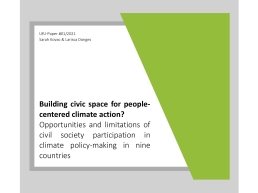
12. November 2021
UfU Paper 01/2021 on participation processes for climate policy-making
UfU Paper highlights strengths and weaknesses of processes for civil society participation in climate policy-making in nine countries
As part of the ZIVIKLI project, UfU published the study Civic space for participation in climate policies in Colombia, Georgia and Ukraine in late 2020. This study also included a chapter on “good practice” examples for participatory processes to involve civil society in climate policy-making at the national level.
After the publication of the study, questions were raised in related discussions and events with representatives of climate-driven civil society asking about identified shortcomings in the evaluated participation processes. These results of the ZIVIKLI research have not yet been published due to the focus on good practice aspects in the above-mentioned chapter.
With UfU Paper 1/2021 Building civic space for people-centered climate action? Opportunities and limitations of civil society participation in climate policy-making in nine countries, the authors broadened the analysis’ scope and present the results of their extensive research. Thus, the UfU Paper 1/2021 highlights both, the strengths and weaknesses of each of the participation processes examined, and provides initial suggestions for improving the weaker aspects.
Renewable energy technologies are job boosters
09. November 2021
Renewable energy technologies are job boosters
An ambitious expansion of renewables provides great potential for the creation of new jobs, shows part 1 of the Co-Benefits Knowledge Commons Factsheets Series 2021/2022
Part 1 of the 2021/2022 edition of the Co-benefits Knowledge Commons gives an insight into the state of the art of current research on renewable energies in the power sector and related developments of the job market. The publication shows: Renewables can create sustainable jobs and improve the gender balance in the future energy sector of many countries.
To harness the full potential of these co-benefits, an ambitious expansion of renewable energies is crucial, but should be accompanied by supporting policies in related sectors such R&D and education to build the skills base needed for the energy transition.
The Co-benefits Knowledge Commons Factsheet Edition Employment opportunities and skill requirements aims to connect policy makers in local and national government agencies with expert organisations and contact persons, to quantify employment potentials, assess policy options and unlock co-benefits for people and communities. Editors and authors of the factsheets also want to give decision-makers reliable data about the interconnection of climate-friendly power planning and sustainable job creation at hand.
The factsheet series is published by the COBENEFITS project in partnership with the Sustainable Energy Jobs Working Group under IRENA’s Coalition for Action. UfU, together with the IASS has curated the series. The publication can be addressed through the COBENEFITS project page.
Launch of third round of local climate small-scale projects in Central Vietnam

01. November 2021
As in the previous projects in 2019 and 2020, UfU is again supporting local small-scale projects in Central Vietnam for raising awareness among different population groups about local climate change issues and more climate-friendly options for action, as well as for capacity building of youth for more climate action. With funding from the German Federal Foreign Office’s Climate Fund and in cooperation with the Mientrung Institute for Scientific Research (MISR), UfU enables talented and young Vietnamese to develop their own project ideas and implement them locally.
At the beginning of the year, young people from Central Vietnam were able to apply with their own project ideas to the ideas competition of UfU and MISR. Of all the applications, the four best project ideas were selected for funding and subsequent implementation.
This year, the following small projects were selected:
- Raising awareness about climate change through a school garden. A demonstration project at Hoa Phuoc Primary School, Hoa Vang District, Da Nang City. Project development and implementation by students Kieu Thi Phuong, Phan Minh Luu An, Van Thi Thao Vy, Bui Van Quoc Trung and Tran Quang Huy.
- Raising public awareness of the carbon storage capacity of seagrass beds to mitigate climate change and minimize activities that lead to degradation of the seagrass ecosystem in Lang Co Lagoon, Thua Thien Hue Province. Project development and implementation by students Nguyen Huu Chi Tu and Nguyen Tu Uyen.
- Establish a climate change prevention and adaptation club in An Dong district, Hue city. Project development and implementation by young teachers Le Thi Thanh Nhan and Tran Thi Ngoc Cam of Hue Medical College.
- Increasing the rate of native tree species and a production forest in Cam Nghia village, Cam Lo district, Quang Tri province. Project development and implementation by Nguyen Van Ky Truong, Nguyen Xuan Tam and To Minh Hanh.
The overall project and the start of the four small projects were officially started with a kick-off workshop on September 26. Among the 25 participants were, besides the project teams, the mentors of some teams, some project winners from the last years and other interested young people. In a friendly and productive atmosphere, UfU gave an introduction to project management. Afterwards the challenges and plans of all projects and solutions and suggestions for improvement were discussed together. Until the end of February 2022, the small projects will now be implemented and accompanied under the support of UfU and MISR.
Fifth Aarhus Workshop on human rights and climate laws
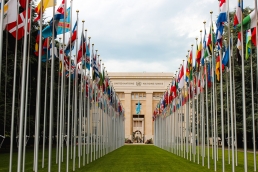
13. September 2021
On 7. September 2021, Slovenian and German NGOs co-organised the Fifth Aarhus Workshop.
The NGOs invited governmental officials, legal scholars and experts as well as researchers to discuss the intertwining between human rights, climate laws and the Aarhus Convention in the European Union. The central question was, how civil society (organisations) are involved in environmental and climate policy processes at EU and Member State level.
The Aarhus Convention adopted in 1998 by the European Union and its Member States lays the foundations for the right to be informed, be able to effectively contribute own ideas of a climate-neutral Europe and also have the opportunity to take legal action. Due to this treaty civil society and NGOs have the right to go to court and challenge EU-decisions, when environmental and climate laws are presumed to be violated. Examples for those administrative decisions are approvals of new fossil fuel projects, fishing quotas, approvals of state aid for nuclear power plants and so on. Since the European Union is criticised for not allowing citizens and NGOs to review their decisions, there will be a new regulation implementing the Aarhus Convention. Therefore, it has been carefully discussed at the Workshop, whether the new regulation and other EU laws will finally fully comply with the Aarhus Convention.
For this reason, the Aarhus Workshop played a key role in bringing together a variety of stakeholders and raising awareness on how to improve citizen’s and NGOs (legal) involvement in climate and environmental protection. Around 50 participants from environmental associations, foundations, universities, governmental organisations as well as legal professionals mainly from Slovenia, Germany and Brussels region joint the Aarhus Workshop to tackle the implementation deficits within the European Union and also at Member State level. Moreover, this joint Workshop, taking place merely a few weeks before the seventh session of the Meeting of the Parties of the Aarhus Convention (so-called “MoP 7”; from 18. to 21. October 2021 in Geneva) served as a crucial, decisive occasion, a springboard into a cleaner, greener future, where citizens are actively participating.
Speaker:
- Dr. Vasilka Sancin, Associate Professor at University of Ljubljana & Director of Centre for International and Business Law
- Dr. Roda Verheyen, LL.M., Environmental Lawyer of Rechtsanwälte Günther Partnerschaftsgesellschaft
- Mag. Senka Šifkovič Vrbica, Environmental Lawyer at the Institute for Spatial Policies (IPoP)
- Sebastian Bechtel, LL.M., Environmental Democracy Lawyer at ClientEarth Brussels
- Mag. Tanja Pucelj Vidovič, Focal Point for Aarhus Convention at the Ministry of the Environment and Spatial Planning
- Matthias Sauer, Head of Unit of Federal Ministry for Environment, Nature Conservation and Nuclear Safety
- Alistair McGlone, Director at Alistair McGlone and Associates Ltd & former member of the Aarhus Convention Compliance Committee
- Dr. Maša Kovič Dine, Assistant Professor at University of Ljubljana
- Dr. Maria Alexandra de Sousa Aragão, Professor at the University of Coimbra
- Aljoša Petek, Environmental lawyer at PIC – Legal centre for the protection of human rights and the environment
In our first vivid panel discussion on the upcoming Meeting of the Parties of the Aarhus Convention (MoP-7) the panellists Mag Tanja Pucelj Vidovič; Matthias Sauer and Alistair McGlone discussed whether or not the European Union is granting its EU citizens and NGOs sufficient access to justice. Dr. Michael Zschiesche, Managing Director and Chairman of the UfU board, emphasised that: “The double standard by the European Union needs to stop. EU citizens and NGOs must be able to hold the European Union accountable, when their decisions harm the environment and the climate, as civil society can hold Member States accountable in environmental matters.” Alistair McGlone further strongly underlined, that “The EU should champion accountability and the international rule of law to avoid damaging its reputation as a global leader in environmental forums.”
A second panel discussion covered the interplay between public participation in environmental decision-making and environmental and climate litigation. Dr. Maša Kovič Dine, Dr. Maria Alexandra de Sousa Aragão and Aljoša Petek, – put it this way: “Proper planning and approval procedures with early, inclusive and effective public participation on Member State and EU level can prevent lengthy and expensive legal disputes in courts. Active citizenship prevents long-term financial costs by environmental degradation.”
All panellists agreed, that the current participation formats do not meet the needs of the younger generation, which is heavily engaged in climate protection and sustainable development.
Presentations:
– Human Rights, European & National Climate Laws and the Importance of the Aarhus Convention (PDF)
– Slovenian environmental NGO’s perspective on Slovenian Presidency of the Council of the European Union regarding environmental matters
Press Release:
How the European Union violates international environmental law since two decades
NGOs that organised the workshop:
- UfU – the Independent Institute for Environmental Issues,
- PIC – the legal centre for the protection of human rights and the environment,
- IPoP – The Institute for Spatial Policies
- Umanotera – the Slovenian Foundation for Sustainable Development
- Centre for International and Business Law (CIEL)
About the workshops:
A total of five online Aarhus Workshops were organised by UfU in 2020 and 2021. On 11 May 2020, 30. June 2020, 17 November 2020 and on 24 March 2021 interested participants from Belgium, Germany, Portugal and Slovenia took part in the digital Workshops. A joint position paper “German Portuguese Slovenian Civil Society Declaration on Access to Justice for Citizens & NGOs at European Union Level“ was published. UfU thanks all who contributed to the five Aarhus Workshops. All persons involved made this series of events a success.
All Aarhus Workshops are part of the project “European Implementation of the Aarhus Convention in the Digital Age (EU-AarKo)” of the Independent Institute for Environmental Issues UfU e.V. This project is financially supported by the German Environment Agency (UBA) and the Federal Ministry for the Environment, Nature Conservation and Nuclear Safety within the framework of the sponsorship of environmental associations.
For any questions around the Fifth Aarhus Workshop, please contact Kathleen Pauleweit (UfU) kathleen.pauleweit@ufu.de or Aljoša Petek (PIC) aljosa.petek@pic.si.
More information on environmental democracy on European Union level can be found here (German): http://www.aarhus-konvention.de/
For more information about the EU-AarKo project and its background, click here.
Prof. Dr. Thomas Schomerus for the Aarhus Committee
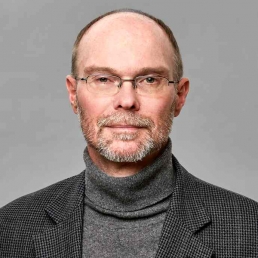
17. August 2021
Nomination of Prof. Dr. Thomas Schomerus to serve the Aarhus Committee of the United Nations by a strong alliance of European environmental NGOs
We congratulate a long-standing UfU partner and co-author to his nomination to the Aarhus Convention Compliance Committee (ACCC). On 22. July 2021 the Austrian OEKOBUERO – Alliance of the Environmental Movement, the German Independent Institute for Environmental Issues (UfU) e.V., the European Network Justice & Environment, the Ukrainian Resource and Analysis Center “Society and Environment” and the European Environmental Bureau, acting on the behalf of the European ECO Forum, have nominated Mr. Schomerus. The NGO candidate might be elected at the next Meeting of the of the Parties of the Aarhus Convention in October 2021.
Non-governmental organisations can – next to Parties and Signatories to the Aarhus Convention – nominate persons with recognised (legal) competence in Aarhus topics and of high moral character to serve the ACCC. For the first time since 2002 where the Compliance Committee was established, a German Committee member could be elected by its 47 Parties at the Seventh session of the Meeting of the Parties to the Aarhus Convention (MoP 7). The UfU would strongly welcome the first German ACCC membership by Mr. Thomas Schomerus due to his widely appreciated acknowledged legal competence in Aarhus topics and his high moral character.
Prof. Dr. Dr. h.c. (GTU Tiflis) Thomas Schomerus has been a civil servant (Regierungsrat, Oberregierungsrat) for eight years of the Free and Hanseatic City of Hamburg. He conducted permitting procedures, including public participation procedures with oral hearings. He has valuable practical experience in the application and enforcement of environmental law. During this time, he also represented the City of Hamburg in the Federal Council (Bundesrat). The German Bundesrat is a legislative body that represents the sixteen federated states (Bundesländer) of Germany. Through the Bundesrat, the Bundesländer participate in the legislation and administration of the Federal Republic and in matters of the European Union.
In addition, he has served as a much-respected administrative law judge at the Higher Administration Court (Oberverwaltungsgericht) of Lower Saxony in Lüneburg (7th Senate). In this role, he was entrusted with complex approval procedures and gained a broad overview of German and European jurisprudence in the infrastructure sector.
Moreover, Mr. Schomerus is an award-winning University Professor of Public Law, in particular Environmental and Energy Law, of the Leuphana University Lüneburg in northern Germany. He has not only published over 300 books, articles and commentaries (including on the Environmental Information Act) and worked on numerous research projects, the also shared his practical and scientific expertise at Task Force and Working Group meetings of the Parties to the Aarhus Convention.
Most recently, UfU had the honour to prepare a first comprehensive study together with Mr. Schomerus evaluating the Federal Environmental Information Act for the German Environment Agency (Umweltbundesamt, UBA). UfU is an independent and application-oriented research institute in eastern Germany with several Aarhus-related research projects. UfU highly appreciates Mr. Schomerus’ strong practical approach in applying environmental law. Mr. Schomerus is not only distinguished by his fruitful collaboration with the UfU, but also by his voluntary commitment to the German Society for Environmental Law (Gesellschaft für Umweltrecht, GfU) and Friends of the Earth Germany (Bund für Umwelt und Naturschutz Deutschland, BUND).
Mr. Schomerus’ work area is not limited to Germany. He has carried out numerous international projects in a wide range of countries within the UNECE region, inter alia Russia, the United Kingdom, United States of America, as well as European Union countries. He has received an honorary doctorate from the University of Tbilisi (Georgia). He is part of an international network with work activities in China, Japan, Mongolia, South Korea, and Taiwan.
To conclude, Mr. Schomerus is an outstanding legal expert highly respected by civil society actors, practitioners and governmental agencies of Germany and beyond. His work and contributions has been most appreciated by UfU, in his practical work for the City of Hamburg, the Higher Administration Court of Lower Saxony, the Federal Council (Bundesrat) as well his scholar work at international meetings to the Aarhus Convention and at the Leuphana University Lüneburg. Mr. Schomerus impresses greatly with his diligent work ethic and dedication. He comports himself with integrity at all times. Therefore, UfU is deeply convinced that Mr. Schomerus will contribute with his excellent legal, practical and scientific expertise to the invaluable work of the Compliance Committee.
The Aarhus Convention Compliance Committee (ACCC), which reviews the compliance with the Aarhus Convention by state parties, is in many cases the last chance of environmental associations and environmentally-concerned individuals to review compliance with environmental law beyond their national jurisdiction. They can turn to the ACCC with an individual communication, which can be seen as modelled by various individual human rights complaints.
The Aarhus Convention is a multilateral environmental agreement which promotes environmental democracy within the UNECE region. The Aarhus Convention grants the public and environmental NGOs rights regarding access to environmental information, public participation and access to justice, in governmental decision-making processes on environmental matters.
Register here if you want to join the digital Fifth Aarhus Workshop on Human Rights, European and National Climate Laws and the Importance of the Aarhus Convention on 7. September 2020 before the MoP 7.
To find out more about projects promoting environmental democracy by the Independent Institute for Environmental Issues click here.
Supporting small associations - with the Umwelt€uro

05. August 2021
Florian Kliche, Managing Director of UfU, is an honorary advisory board member of the Umwelt€uro. What he does there and what the Umwelt€uro is, he explains to us in a short interview.
UfU: Dear Florian, you have been a member of the Umwelt€uro project advisory board since 2019. What is the Umwelt€uro and how did it come about?
Florian Kliche: First of all, you have to know that there are simply an incredible number of non-profit organisations in Berlin that have good ideas and projects and are committed to this city. At the same time, the pavement is tough, especially for the small initiatives like neighbourhood gardens, non-profit workshops or educational initiatives. Many associations need regular donations and only survive through volunteers who support the associations in their free time. The Umwelt€uro is a campaign by the Berlin company GASAG, coordinated by Berlin 21 e.V., to support precisely these small initiatives and projects in Berlin.
UfU: How does the Umwelt€uro work?
Florian Kliche: As a non-profit organisation, I can apply to the Umwelt€uro with my initiative. For example, initiatives to protect city trees, to grow vegetables for children or to repair donated bicycles have already applied. The condition is that the project has an environmental connection as well as a relation to Berlin. We as the project advisory board look at the applications received and then include them in the campaign.
UfU: Once a project is included in the campaign, what happens next?
Florian Kliche: Now the collecting can begin. GASAG is providing 50,000 Euros for the campaign. Consumers decide which initiative gets how much money via the Umwelt€uro codes. These codes are available at various GASAG campaigns and also at the initiatives. This way, consumers can decide which initiative they want to support.
UfU: You are also the managing director of UfU. Why is the campaign close to your heart?
Florian Kliche: I am in a very good position. UfU now has almost 40 full-time employees working for us. This puts us in a position to participate in complicated tenders and to apply for large pots. However, one should not forget that there are many associations and initiatives that do not or not yet have this opportunity. That’s why I think it’s important to support this campaign.
UfU: Are there still free places for initiatives?
Florian Kliche: Yes, you can still apply. We are looking forward to more great projects and initiatives that want to take part in the campaign.
You can find the initiative here: https://unternehmen.gasag.de/nachhaltigkeit/umwelteuro
Our new office in the House of Democracy and Human Rights

1. of June 2021
UfU has moved. The address remains the same, but we are now in new, even larger offices in the House of Democracy and Human Rights. For UfU, this move is also an investment in the future in times of Corona and home office. We are growing steadily and we believe that the trend towards home office will continue after the pandemic. Nevertheless we would like to give our staff the opportunity to work in an office in the future as well.
The UfU is now located in the middle and back building on the fourth floor, thus also reuniting two previously separate parts of the Institute.
Some of us are still unpacking the boxes, but we are already looking forward to visitors to the Institute.
Recommendations for Air Quality Management in Vietnam
22.04.2021
Since 2019 UfU and Ecologic Institute, commissioned by the GIZ, have been accompanying the legislative process for the amendment of the Vietnamese Environmental Law (LEP), especially the chapters on environmental permits and air pollution control. As part of the project “Development of recommendations (based on best practices, among others) on how to implement and operationalize the revised Law of Environmental Protection of Vietnam” UfU and Ecologic commented on the draft for the LEP amendment and provided recommendations for further improvements, for air quality management, and support in the preparation of the subsequent LEP implementation.
While the LEP amendment entails significant progress at the national level, the provinces often struggle with the implementation of national requirements. In the field of air pollution control, the new LEP requires all provinces to develop air quality management plans from 2022 on. In order to support this process, the Vietnamese Ministry of Natural Resources and Environment prepared a Technical Guideline on Air Quality Management Planning for provinces. However, this guideline does not provide recommendations and guidance on the specific measures that the provinces could include into their management plans.
Therefore, UfU and Ecologic developed a package of three publications on concrete tools and recommendations for air quality management measures for the provincial authorities in Vietnam:
- Table of Air Quality Management Activities (AQMA-TABLE) for emission reduction and health protection
- Local Air Quality Management – Manual for combined use with the AQMA-Table
- Toolbox for Immediate Action
The first document, the AQMA-Table, lists potential measures that the provincial authorities can implement and include into their management plans in the areas of Agriculture, Construction, Industries, Energy and Electricity, Transport, Domestic Activities, Solid Waste Management, as well as Health Emergencies. The second document, the accompanying manual to the AQMA-Table, elaborates in a first step on the table and the different information it provides. In a second step, it outlines the process of how to choose appropriate measures for a province’s air quality management plan. Finally, the third document serves as a toolbox for immediate action within the provinces. Since the new LEP and thus also the provincial air quality management plans will not enter into force before 2022, but with air pollution already being an urgent issue at the moment, immediate action against air pollution is of utmost importance. Therefore, the document provides recommendations on measures that can be implemented right away, i.e. that can be taken within the current national legal framework, without the establishment of new regulations, and without further research and evaluation. In this way, the three documents can support the provincial authorities in the development of the program of measures of their air quality management plans and encourage them to become active against air pollution already before and during the development phase of the plans.
Virtual study visits in the BEACON project
09. April 2021
The idea of study visits
The BEACON (Bridging European and Local Climate Action) project has been running at UfU since spring 2018 and is a project to promote climate protection through the exchange between national governments, municipalities and schools in Europe. The aim is to contribute to a stronger European integration through a bilateral and multilateral dialogue in order to ultimately create the common goal for the implementation of the Paris Climate Agreement.
As a highlight of the BEACON project, two study visits were planned, during which representatives of the partner countries Bulgaria, the Czech Republic and Romania were to be invited to Germany. A three-day program was planned with 15 educational policy multipliers each, such as speakers in teacher training, representatives from school authorities and school ministries. The study visit program should include schools and educational institutions that carry out energy-saving projects as well as energy-saving laboratories and other environmental educational institutions. The aim of the study visits was to network the actors with one another and to use the impulses of the program to discover common points of contact for work in the field of climate protection.
The first study visit with all three countries could take place as planned in autumn 2019. Invitations were made to Berlin and here the guests were able to visit various schools and hold expert talks in order to get to know energy-saving projects on site. Excursions to energy laboratories and discussions with climate protection managers and the Senate administration were also on the program and were able to provide important impulses.
The switch to digital contributions
The second study visit was to be carried out in the first half of 2020 and has been postponed repeatedly due to the pandemic. In the course of the planning it became clear that international trips could not take place during the project period and that an alternative format had to be developed. The crux of the matter is that these study visits thrive on the network character and direct exchange and cannot easily be converted into a digital format. The guiding principle of the UfU was now to provide the multipliers in the partner countries with some informative and descriptive contributions as best practice examples for local climate protection. The result were two 15-minute videos in which we worked with a professional film team:
In the film “Wind, Wagnis, (Mit)Wirkung”, the energy self-sufficient place Feldheim is presented, which we would have liked to have visited with the guests on a study visit. It is the first and so far only place in Germany that completely generates its own electricity and heat for its own use and is thus playing a pioneering role in the energy transition. Barbara Ral, Climate Protection Manager of Potsdam-Mittelmark, and Michael Knape, Mayor of Treuenbrietzen, report in the film how the interplay of favorable starting conditions, the courage of individuals to dare something new and the broad participation of citizens contributed to the success of such a pilot project what steps were necessary and what obstacles there were.
Karola Braun-Wanke and Judith Hübner from the environmental coordination office of the Berlin district of Steglitz-Zehlendorf were interviewed for the film “Vernetzt-Aktiv-Nachhaltig”. In the Botanical Garden in Berlin they report on how the coordination office came into being, what goals it is pursuing, what their work looks like in practice and what role networking plays in it. They also provide information about their educational mandate and the environmental model, which is being pursued by the city of Berlin. The establishment of the Berlin environmental coordination offices was preceded by an appraisal process on environmental education offers in the districts, in which the UfU was involved. As part of the film screenings, the UfU management explained the development process of the coordination offices.
Another UfU contribution was made for the Bulgarian partners at their request for the National Climate Protection Initiative of the Federal Environment Ministry (NKI). In collaboration with Lothar Eisenmann from ifeu (Institute for Energy and Environmental Research Heidelberg), the NKI was presented live as an example of funding opportunities for sustainable educational projects and other climate protection activities in German municipalities and schools.
The study visits were now mainly organized by the local partners and the UfU contributions were integrated into the program. The events in the Czech Republic and Bulgaria already took place as purely online workshops and the UfU contributions were received with many interested inquiries and a lively exchange of discussions. The Romanian study visit is planned for mid-April as a hybrid event: The educational policy multipliers meet on site in Romania, get to know various educational institutions in the area and the UfU is digitally connected for the contributions. Such a format is certainly a welcome change from the purely digital alternative and we keep our fingers crossed that the pandemic will not thwart the bill again!



